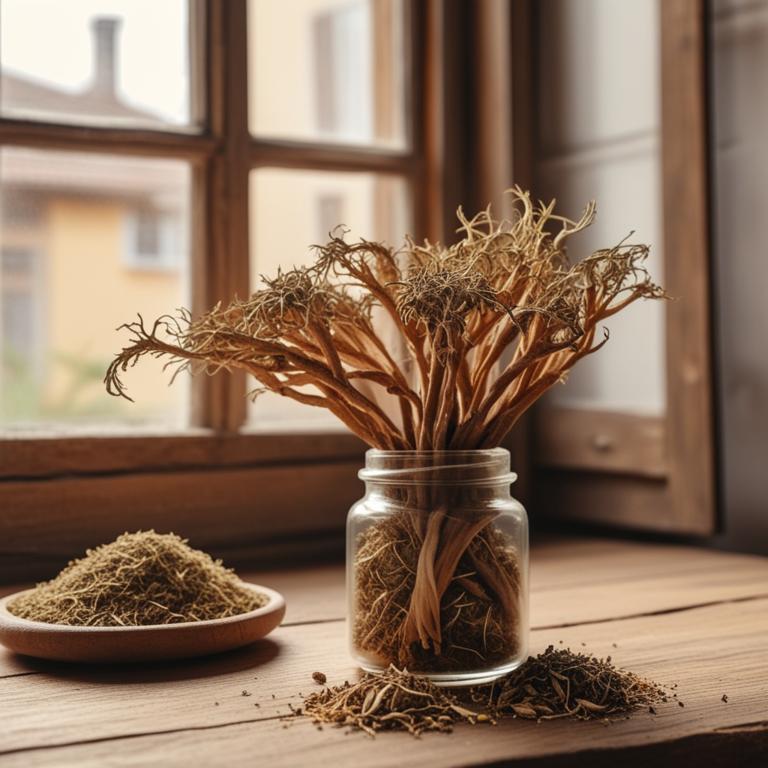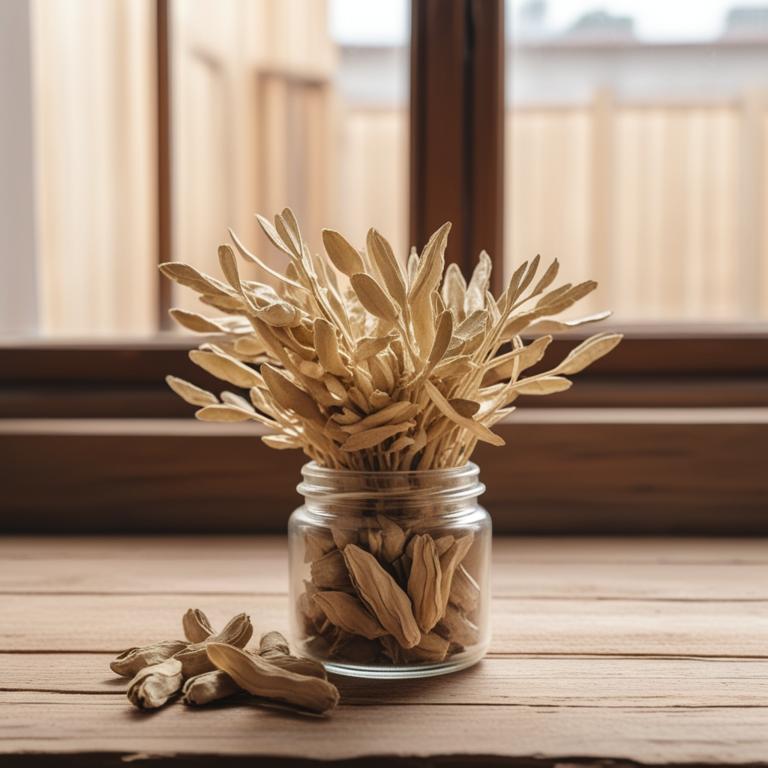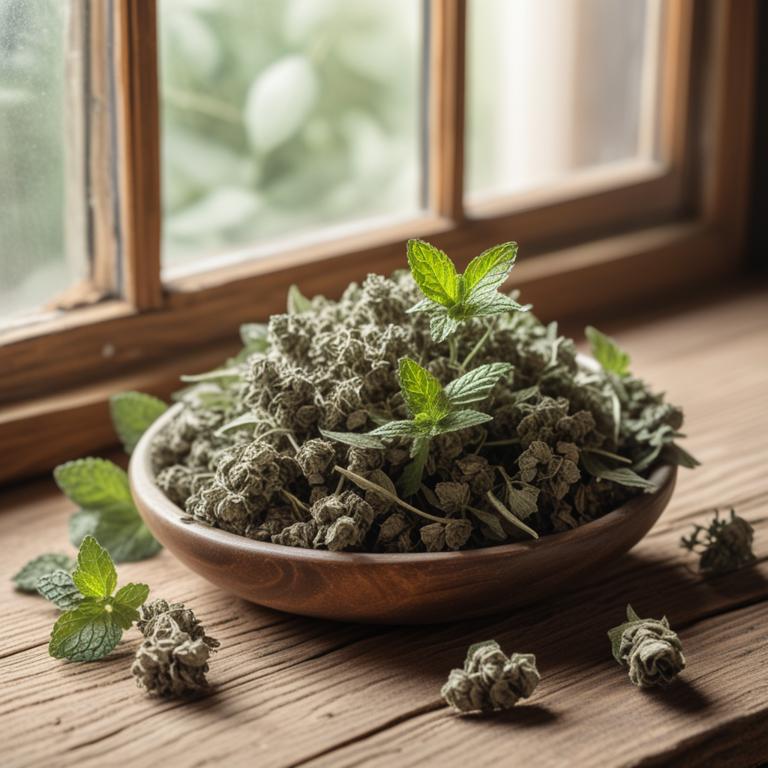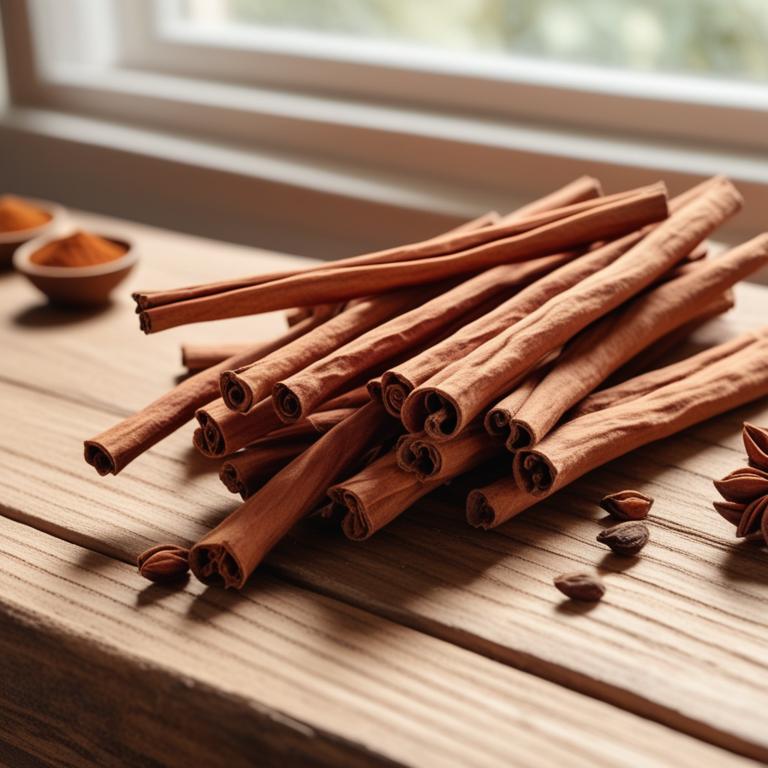Updated: Dec 1, 2024
Cholecystitis: Causes, Symptoms, Medicinal Herbs, and Therapeutic Herbal Preparations
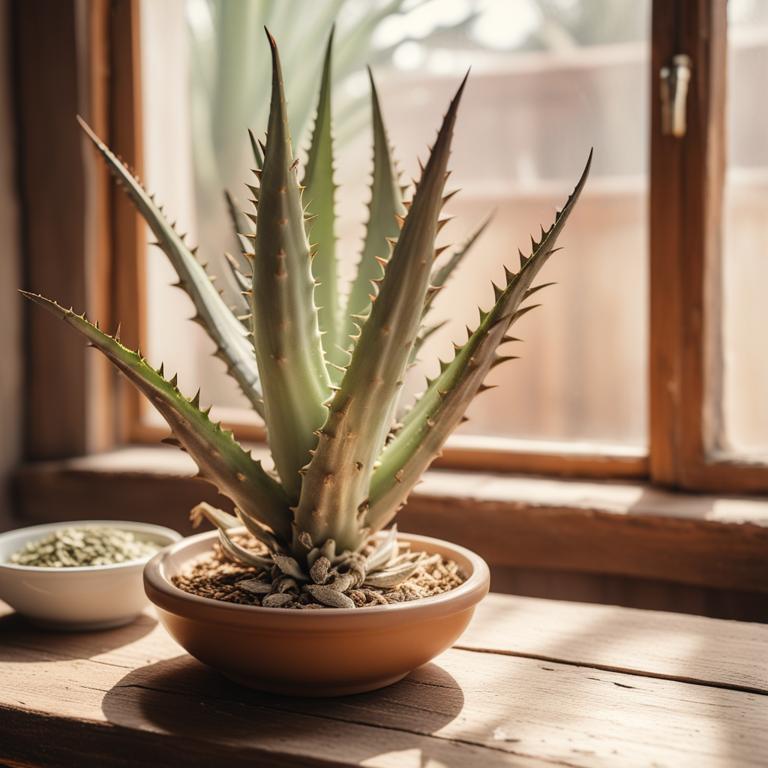
Cholecystitis is a painful condition where the gallbladder becomes inflamed, usually due to a blockage in the bile ducts.
This can lead to severe abdominal pain, nausea, and vomiting. For those who experience cholecystitis, everyday activities become a struggle, making even simple tasks feel like a chore. The causes of cholecystitis are often linked to gallstones, which can form when bile salts and cholesterol mix together in the gallbladder. Other contributing factors include a high-fat diet, obesity, and certain medical conditions. When the gallbladder becomes clogged, the bile can't flow properly, leading to inflammation and pain.
Herbal remedies can offer relief from cholecystitis symptoms. Herbs like turmeric, with its anti-inflammatory properties, and ginger, which helps to reduce nausea, can be effective in soothing the gallbladder. Dandelion root, rich in bile salts, can help stimulate the flow of bile and aid in the digestion of fats. These herbs can be consumed in various forms, including teas, tinctures, and capsules. Drinking dandelion root tea, for example, can help stimulate digestion and ease symptoms of cholecystitis.
Additionally, consuming turmeric and ginger in a warm tea can provide relief from abdominal pain and nausea.
Table of Contents
- What are the causes and triggers of cholecystitis?
- What are the advantages of using herbs in the treatment of cholecystitis?
- What medicinal herbs are used to manage cholecystitis?
- What herbal compounds are commonly prescribed for cholecystitis?
- What herbs are safe to avoid if you're suffering from cholecystitis?
- FAQ
What are the causes and triggers of cholecystitis?
The main causes of cholecystitis are several factors that can lead to inflammation of the gallbladder.
Gallstones are a common cause of cholecystitis. These small, hard stones can form in the gallbladder and block the flow of bile, leading to inflammation and pain. When a gallstone blocks the bile duct, it can cause the gallbladder to become inflamed and infected, which can lead to cholecystitis. Bacterial infection is another cause of cholecystitis. Bacteria can enter the gallbladder through the bloodstream or from the bile and cause an infection. This infection can lead to inflammation and swelling of the gallbladder, which can be painful and potentially serious. Trauma to the gallbladder can also cause cholecystitis.
A blow to the abdomen or a fall can cause the gallbladder to become inflamed and infected. This type of trauma can cause the gallbladder to tear or rupture, leading to infection and inflammation. Tumors, such as cancer, can also cause cholecystitis. A tumor in the gallbladder can block the flow of bile and cause the gallbladder to become inflamed and infected. This can lead to symptoms such as pain and jaundice. AIDS, or acquired immunodeficiency syndrome, can also increase the risk of developing cholecystitis. People with AIDS have a weakened immune system, which can make them more susceptible to infections.
If a person with AIDS develops a bacterial infection in the gallbladder, it can cause cholecystitis.
What are the advantages of using herbs in the treatment of cholecystitis?
Using herbs to help with cholecystitis can be a great option for people who want to avoid surgery or reduce their reliance on medication.
These herbs can help to reduce inflammation and pain in the gallbladder, making it easier to digest food and pass bile. They can also help to break down and dissolve gallstones, which can become stuck and cause blockages. Additionally, herbs can help to improve digestion, reduce nausea and vomiting, and support the body's natural healing processes.
Some herbs can also help to improve the overall function of the liver and gallbladder, which can help to prevent future episodes of cholecystitis.
What medicinal herbs are used to manage cholecystitis?
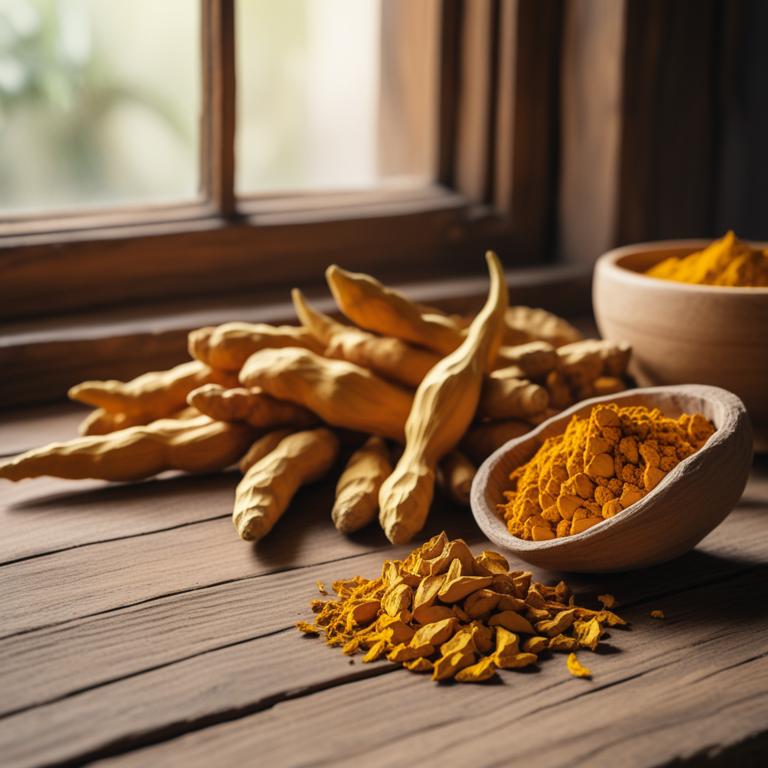
Cholecystitis is a painful inflammation of the gallbladder.
Herbs can help alleviate its symptoms. Turmeric, or Curcuma longa, has anti-inflammatory properties that can reduce swelling and pain in the gallbladder. Ginger, or Zingiber officinale, has similar effects, and its anti-inflammatory compounds can help ease digestive discomfort.
Dandelion root, or Taraxacum officinale, stimulates digestion and helps remove toxins from the body, which can aid in gallbladder function. Licorice root, or Glycyrrhiza glabra, has anti-inflammatory properties and can help soothe the digestive system. Cinchona officinalis, also known as Peruvian bark, contains quinine, which can help reduce inflammation and improve digestion.
These herbs work together to reduce inflammation, ease pain, and promote healthy digestion, which can help manage cholecystitis symptoms.
What herbal compounds are commonly prescribed for cholecystitis?
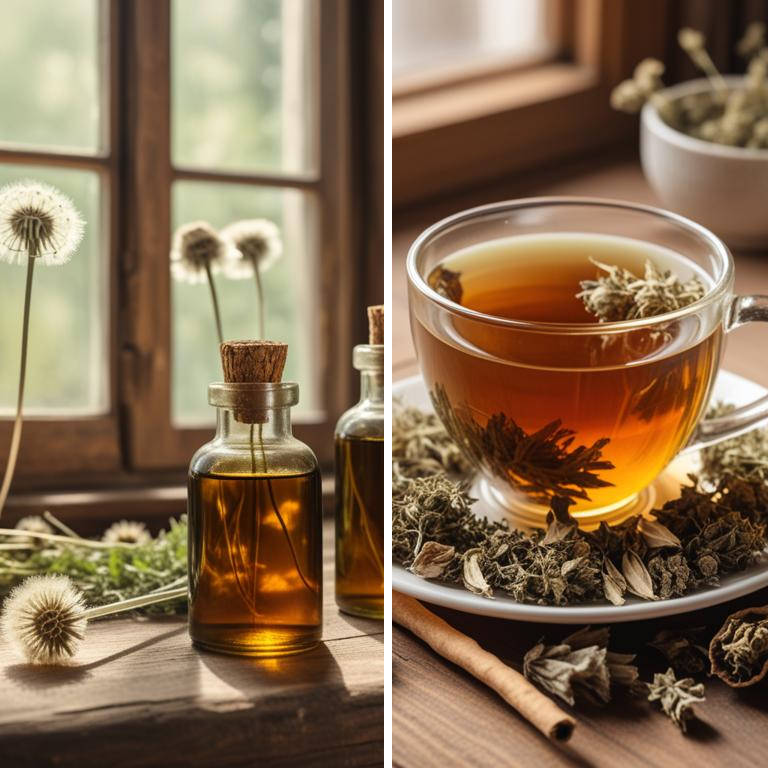
When it comes to treating cholecystitis, a painful condition that affects the gallbladder, herbal preparations can be a great help.
A decoction is a strong liquid made by boiling herbs in water, which can help to ease gallbladder inflammation and pain. This is because the boiling process helps to release the active compounds in the herbs, such as glycosides, which have anti-inflammatory properties. A tincture is another type of herbal preparation that can be useful in treating cholecystitis. This is a concentrated liquid made by soaking herbs in a solvent, usually ethanol. The active compounds in the herbs are then easily absorbed by the body, providing quick relief from symptoms.
An infusion is similar to a tea, but it's made by steeping herbs in hot water for a longer period of time. This helps to release more of the active compounds in the herbs, making it a good option for treating gallbladder problems. A suppository is a solid form of an herbal preparation that's inserted into the rectum, where it can be absorbed by the body. This can be useful for treating cholecystitis because the active compounds can be absorbed directly into the bloodstream, providing quick relief from symptoms. And finally, a tea is a simple and easy-to-make herbal preparation that can be useful in treating cholecystitis. This is made by steeping herbs in hot water, which helps to release the active compounds, such as flavonoids, which have anti-inflammatory properties.
It's worth noting that before trying any herbal preparations, it's always best to consult with a healthcare professional to ensure that they won't interact with any medications or exacerbate the condition.
Additional Resources:
What herbs are safe to avoid if you're suffering from cholecystitis?
If you have cholecystitis, it's best to be careful with certain herbs because they might irritate your gallbladder or make your symptoms worse.
Aloe barbadensis, also known as aloe vera, can be quite harsh on the digestive system, which is already sensitive when you have cholecystitis. This could make your gallbladder inflammation even more severe. Ephedra sinica, a plant commonly used for weight loss and energy, has been linked to liver damage, and if you already have a problem with your gallbladder, it's not worth the risk. It's also worth noting that Ephedra sinica can increase blood pressure, which might be a concern for people with certain health conditions. Another herb to watch out for is Hydrastis canadensis, also known as goldenseal.
It's often used to treat digestive issues, but when you have cholecystitis, it might not be the best choice. The active compounds in goldenseal can irritate the gallbladder and worsen your symptoms. Artemisia absinthium, or wormwood, has been used for centuries to treat various health issues, but it's not suitable for people with gallbladder problems. The herb contains compounds that can irritate the digestive system and make your symptoms more severe. Silybum marianum, or milk thistle, is often used to treat liver damage, but it can also affect the gallbladder.
If you have cholecystitis, milk thistle might not be the best choice, as it could make your condition worse.
FAQ
Are there any specific herbs that can prevent cholecystitis?
There's some research on herbs that might help prevent cholecystitis.
Turmeric contains a compound called curcumin, which has anti-inflammatory properties that could reduce inflammation in the gallbladder. Ginger also has anti-inflammatory properties and may help soothe the gallbladder.
These herbs might be beneficial, but more studies are needed to confirm their effectiveness.
Is it safe to use herbal remedies for cholecystitis during pregnancy?
Using herbal remedies for cholecystitis during pregnancy is not recommended.
Some herbs can cause complications or interact with other substances, which may harm the mother and the baby.
If you're pregnant and experiencing symptoms, talk to your healthcare provider about safe treatment options.
Are there any herbs that can reduce the frequency of cholecystitis?
Ginger has been studied for its potential to reduce inflammation in the body, which may help with cholecystitis.
Turmeric contains a compound called curcumin, which also has anti-inflammatory properties.
Some people find that consuming these herbs, particularly in tea or supplement form, helps to ease gallbladder discomfort and reduce the frequency of cholecystitis attacks.
Can i combine different herbal remedies for cholecystitis?
You can combine different herbal remedies for cholecystitis, but be cautious.
Some herbs can interact with each other or with medications. For example, combining turmeric and ginger may enhance their anti-inflammatory effects, but also increase the risk of bleeding.
Always research the potential interactions and start with small doses to see how your body reacts.
Related Articles
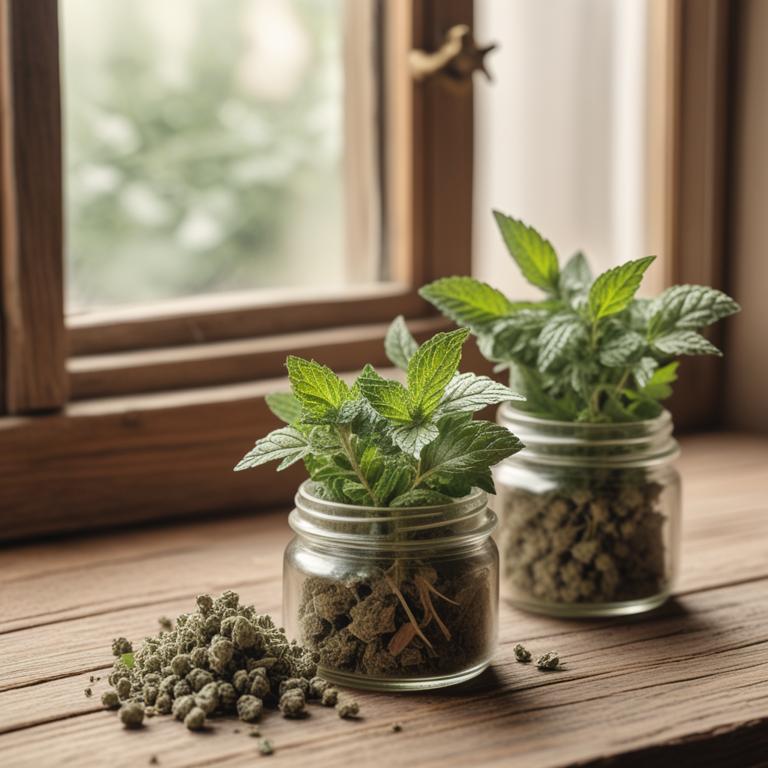
Painful Swallowing: Causes, Medicinal Herbs, and Alternative Preparations for Comfort
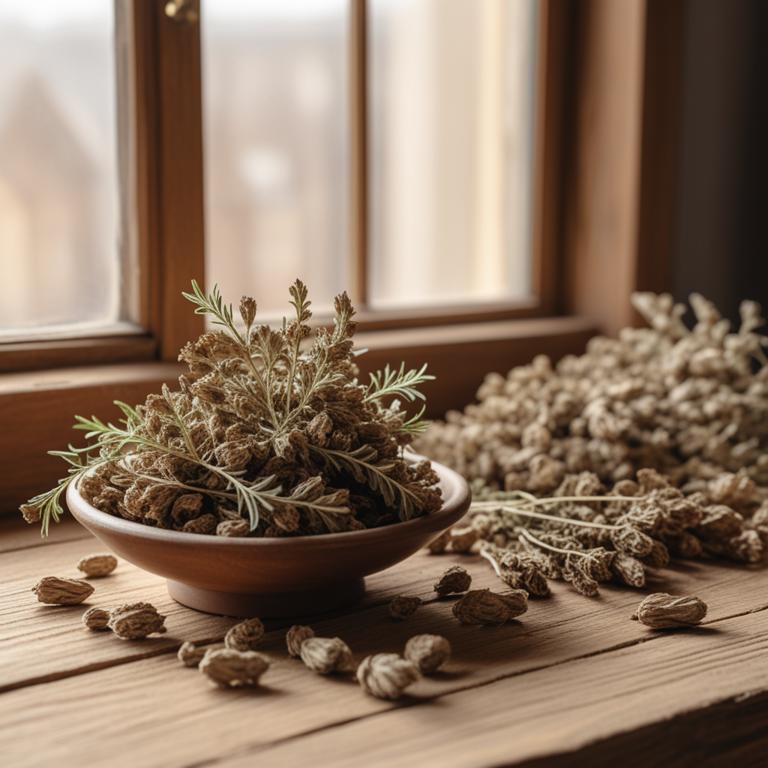
Diverticulitis Causes, Herbal Remedies, and Alternative Approaches to Healing
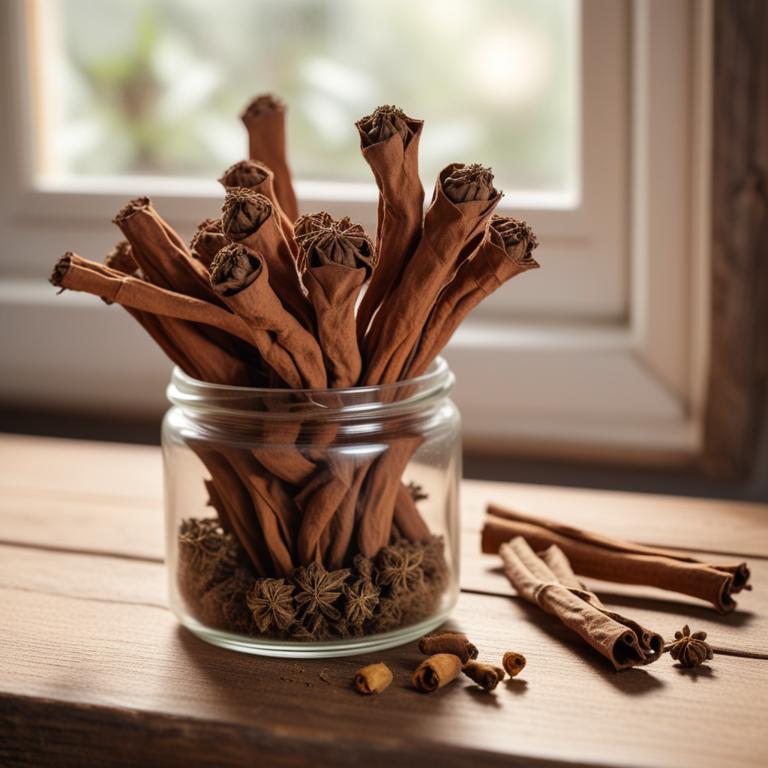
Inflammatory Bowel Disease: Exploring Causes, Medicinal Herbs, and Herbal Supplements
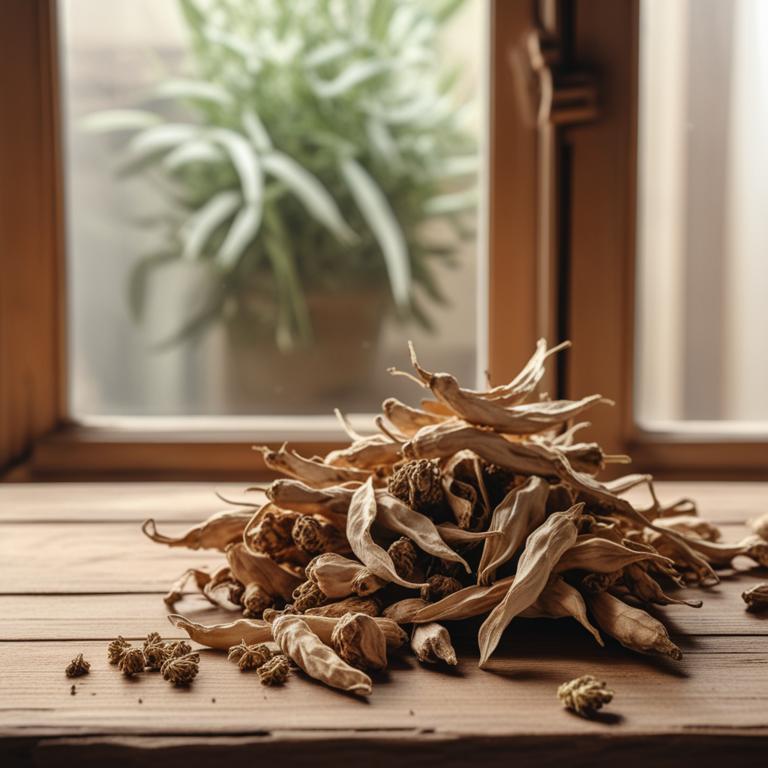
Causes and Remedies of Hiatus Hernia Using Medicinal Herbs
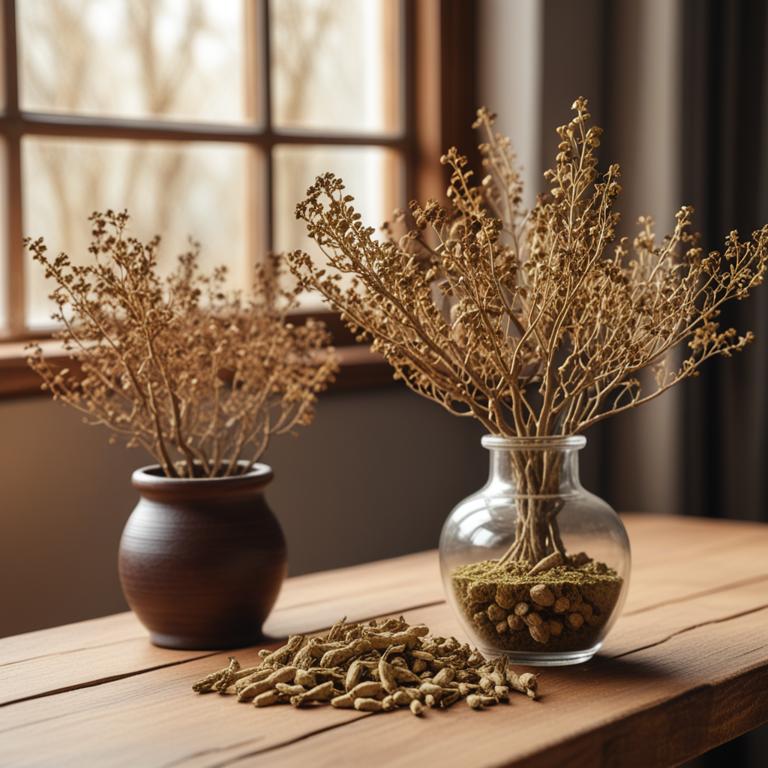
Difficulty Swallowing: Causes, Remedies, and Medicinal Herb Options
